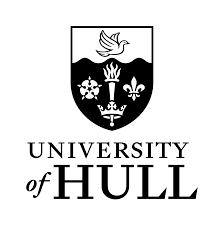Professional Consultancy Project 2025/26

07/10/2025
Project-based module run by the School of Environmental and Life Sciences, University of Hull
Professional Consultancy Project (PCP) - overview
Students work part-time with external organisations part-time for ~10-12 weeks
on a self- contained project, defined by or with the organisation. The students
could, for example, collect data, do surveys, develop case study material,
review legislation - whatever is useful.
What kind of students do PCP?
Third-year undergraduate students on Geography, Earth Science, Environmental
Science, Biology, Conservation or Zoology programmes. They have a broad range
of skills and interests.
What does the external host organisation have to do?
There is no direct cost involved, and students remain under the supervision of
the University of Hull, but we ask that someone is appointed as the student’s
supervisor with the host organisation as a point of contact for guidance. On
average, students spend approximately 10 hours per week working on their
project but where and when will vary: some hosts like students to spend at
least a day a week on-site, especially in the early stages, but others prefer
students to work more off-site, in libraries or at home. We find that virtual
placements, i.e., where the only contact is online, can work well. The host
supervisor can organise a working pattern for the student that suits both them
and the project. Some projects will require students to work intensively for
more hours per week, for shorter periods, whereas others will be best spread
over the full 3 months.
The host must engage with the Science
Placements team during a due diligence process in the Autumn, or early in the
new year. Hosts must provide evidence that they have an adequate Health and
Safety policy that will cover the student while they are working with the host
on PCP, and that appropriate insurances are in place.
When does PCP run?
PCP runs from February to May (with final reports due in May).
What does the external organisation get
out of it?
The student produces a report at the end of the PCP for the organisation and
this includes all their findings, data and case studies. The module has run
successfully for several years, with very positive feedback from a range of
organisations (see below) about the contribution to management decisions and
practical initiatives. Sometimes students produce outputs for the organisation
in addition to the report, such as doing a presentation or making a poster,
infographics, leaflets, websites, GIS Stories etc. Again, arrangements for this
are up to the student and their external supervisor at the host organisation.
What do the student and the University get out of it?
The student’s report is marked by us as part of a module that contributes to
their degree. The student can learn through the experience of working in a
‘real world’ situation on a practical project outside the University, thus
developing their transferable skills in project management in a workplace
environment. As well as enhancing student learning, the University of Hull can
also build better links with external organisations and graduate employers.
What kind of projects do students do?
Projects are usually suggested by the external organisation, in discussion with
students and University staff. Students can do surveys, conduct field or
laboratory work, review material, compile data, create resources and assess
land-use. In the past, many projects have been related to planning and
environmental policy, but we can also cover projects in geology, social policy
and public services. Some examples of previous projects are:
- Waste management opportunities for social enterprises
- Analysis of recycling habits of Hull businesses
- Assessing local waterways as wildlife corridors
- Survey of funding sources for local community groups
- Supporting the Eco Schools initiative
- Improving local space with the Local Action Team
- GIS database for marine pollution information
- Assessing the character of conservation areas in Hull
- GIS-based resource package for Year 12 in schools
- Environmental information for risk plans in the East Riding
- Reviewing council climate change strategies
- Developing teaching materials and evaluating their pedagogical value
- Assessing the potential for an East Yorkshire Geopark
- Reviewing the ecological impact of sea defences
- Curating geological items in for a local museum
To find out more, contact Module Lead
Dr Rebecca Williams (email: rebecca.williams@hull.ac.uk)

